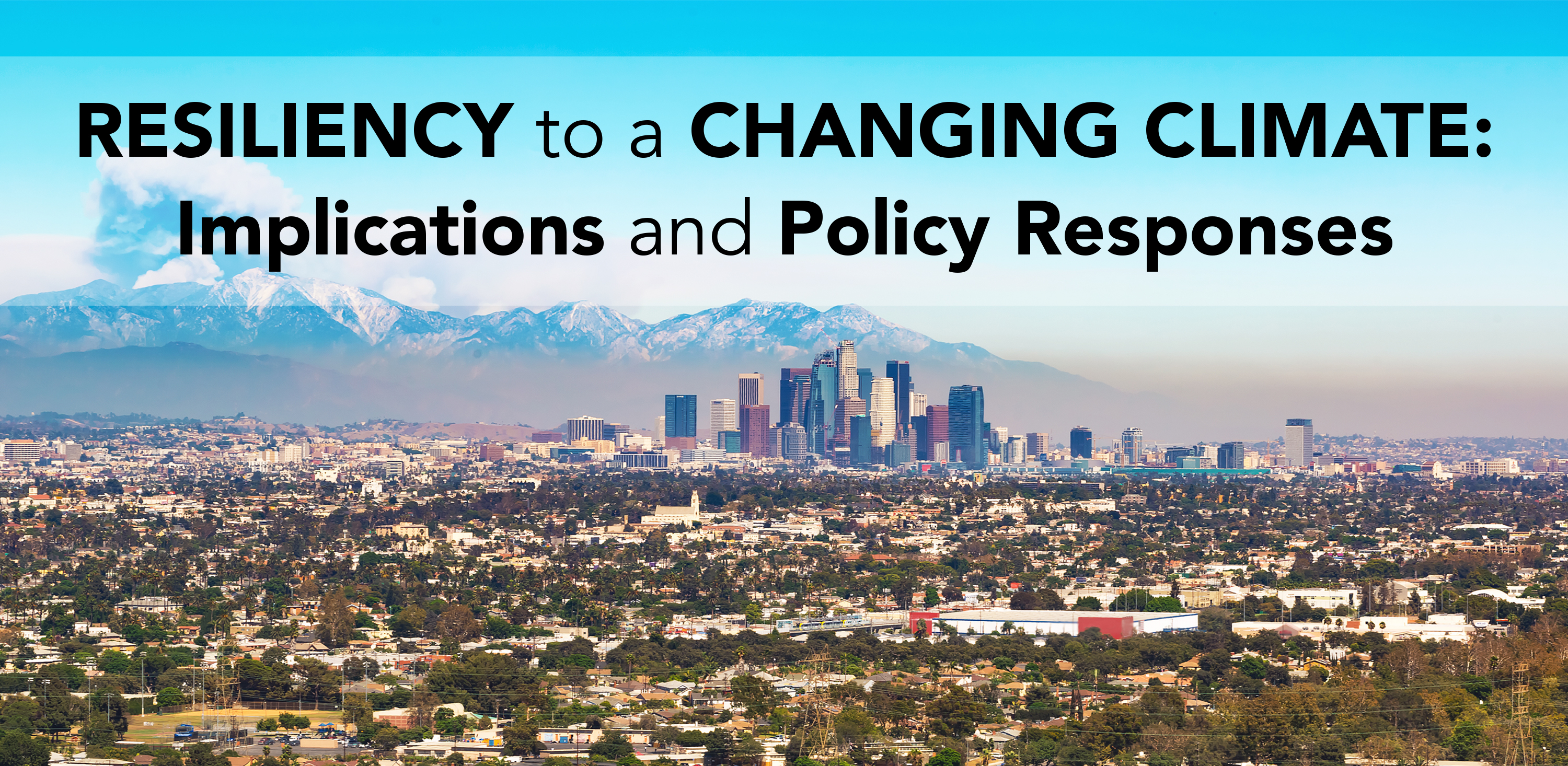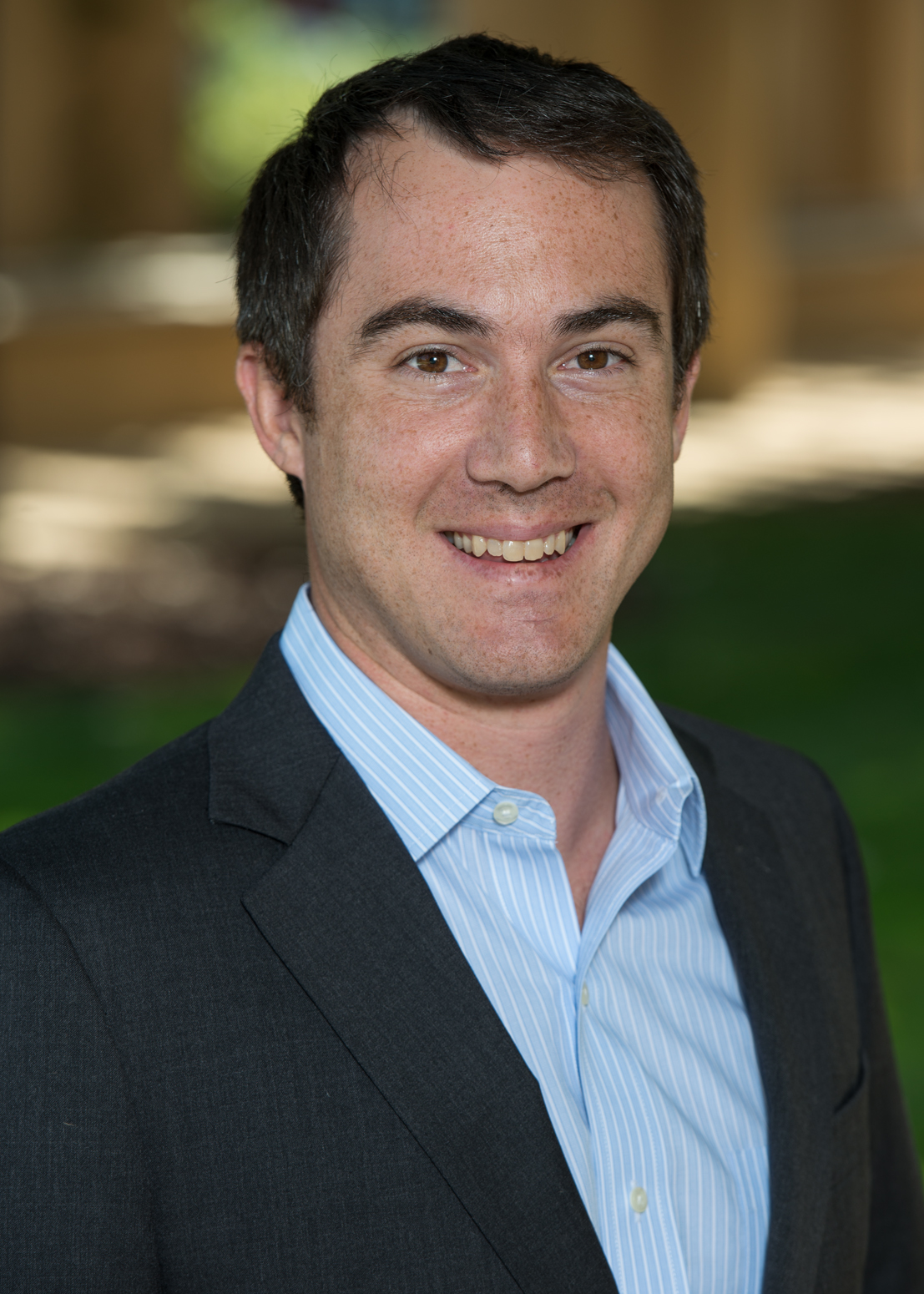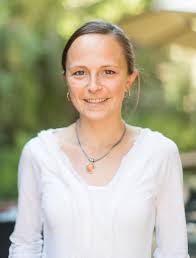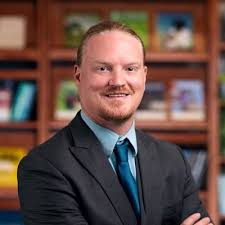Resiliency to a Changing Climate: Implications and Policy Responses
Virtual Workshop

Local and State Resiliency to a Changing Climate
Monday, April 12, 2021
Weather variability, including natural disasters such as droughts and wildfires, is projected to increase due to Climate Change. The economic cost of these natural disasters will be greater in the coming decades, as there are projected to be more severe and frequent events, and because a larger population will be exposed to these risks. This workshop will focus on the potential role of government in preventing and mitigating the negative consequences of natural disasters on individuals, businesses, communities, and states.
Please join us for this workshop that will bring together a small group of stakeholders including researchers (economics, finance, natural resources), program administrators, and policymakers to share up-to-date research on how natural disasters affect the financial well-being of individuals, businesses, communities, and states. The workshop will highlight policies that have been enacted, or that could be enacted, to better prepare individuals, businesses, communities, and states to mitigate the impact of natural disasters.
Featured Presenters:

Judson Boomhower is an assistant professor in the Department of Economics at the University of California San Diego and a faculty research fellow at the National Bureau of Economic Research. His fields of research includ eenergy and environmental economics; public economics; industrial organization; and applied microeconomics. His research interests are environmental economics; energy markets; electricity; oil and gas; climate change; environmental protection; and natural resources.

Tamma Carleton is an assistant professor of economics at the Bren School of Environmental Science and Management at UC Santa Barbara and is an affiliate of the Climate Impact Lab. Carleton joined Bren after a postdoc at the Energy Policy Institute at the University of Chicago. She completed her PhD in Agricultural & Resource Economics at UC Berkeley, where she was an EPA STAR Fellow and a Doctoral Fellow in the Global Policy Lab at the Goldman School of Public Policy. She is an environmental and resource economist, focusing on questions at the intersection of environmental change and economic development.

Marc Hafstead is a fellow and director with Stanford University's Carbon Pricing Institute. His research focuses on the evaluation and design of climate and energy policies. With Stanford Professor and RFF University Fellow Lawrence H. Goulder, he wrote Confronting the Climate Challenge: US Policy Options (Columbia University Press) to evaluate the environmental and economic impacts of carbon taxes, cap-and-trade programs, clean energy standards, and gasoline taxes using a sophisticated multi-sector model of the United States. His research also analyzes the distributional and employment impacts of carbon pricing and the design of tax adjustment mechanisms to reduce the emissions uncertainty of carbon tax policies. His work has been featured in the popular press, including the Wall Street Journal, the Washington Post, Axios, and CNNMoney.
Work in progress includes a project that examines how infrastructure externalities affect public investment decisions. The work is supported by the National Science Foundation.
Workshop Schedule: 2:00-4:00 p.m. MDT
-
- Welcome and Overview: Justin Gallagher, Assistant Professor of Economics
- Marc Hafstead: "Jobs and Environmental Regulation"
- Judson Boomhower: "Wildlife Risk and Policy"
- Tamma Carleton: "Local Climate Risks and the Social Cost of Carbon"
- Questions & Answers Session
For additional information, contact Justin Gallagher or call 406-994-3714
